Publications
Articles, publications, books, tools and multimedia features from the U.S. Institute of Peace provide the latest news, analysis, research findings, practitioner guides and reports, all related to the conflict zones and issues that are at the center of the Institute’s work to prevent and reduce violent conflict.
Question And Answer
Amid a Changing Global Order, NATO Looks East
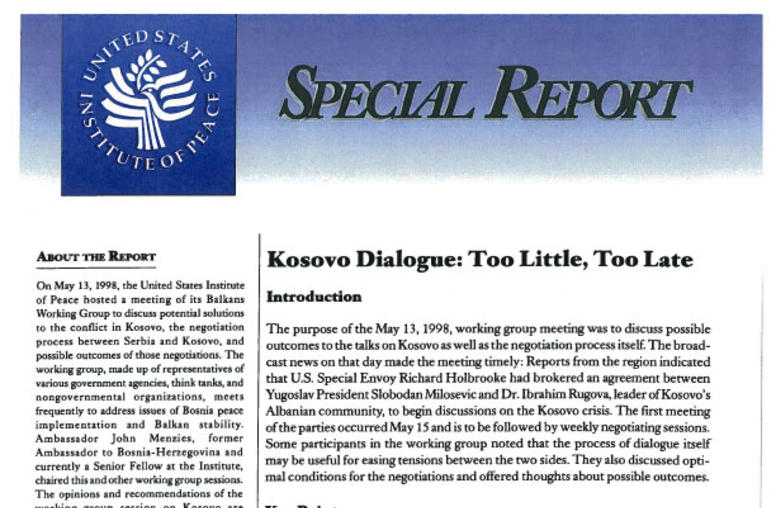
Kosovo Dialogue: Too Little, Too Late
The United States Institute of Peace hosted a meeting of its Balkans Working Group to discuss potential solutions to the conflict in Kosovo, the negotiation process between Serbia and Kosovo, and possible outcomes of those negotiations.
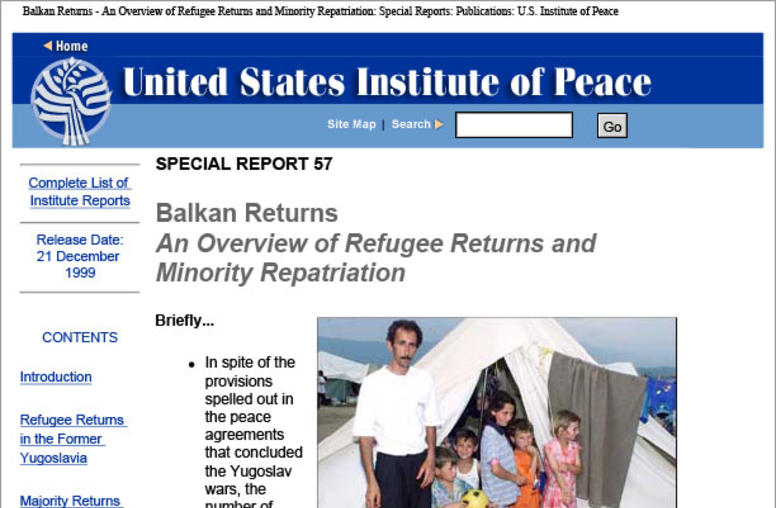
Balkan Returns: An Overview of Refugee Returns and Minority Repatriation
Summary In spite of the provisions spelled out in the peace agreements that concluded the Yugoslav wars, the number of minority returns throughout the former Yugoslavia is still low, indicating that there are considerable barriers to repatriation. The failure to draw refugees back to their towns and villages threatens the reconstruction of civic life, hinders the process of reconciliation and postpones the permanent conclusion of hostilities. The return of minorities is a regional m...
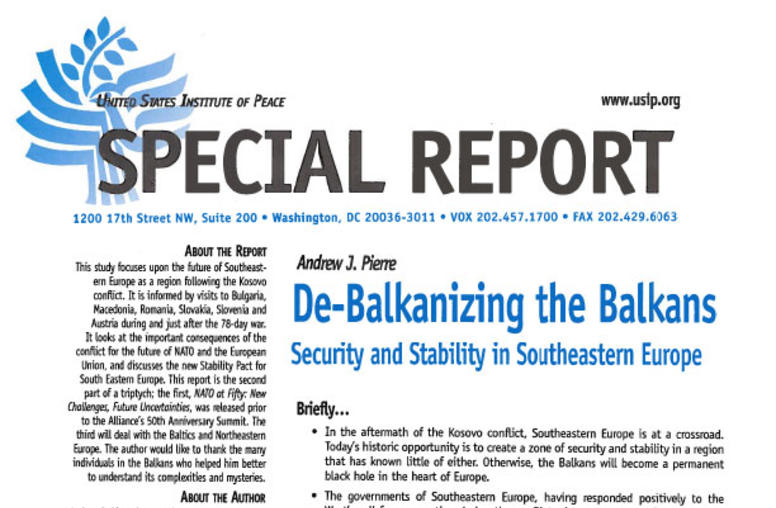
De-Balkanizing the Balkans: Security and Stability in Southeastern Europe
Summary In the aftermath of the Kosovo conflict, Southeastern Europe is at a crossroad. Today's historic opportunity is to create a zone of security and stability in a region that has known little of either. Otherwise, the Balkans will become a permanent black hole in the heart of Europe. The governments of Southeastern Europe, having responded positively to the West's call for cooperation during the conflict--in most cases against their own public opinion--and having incurred subst...
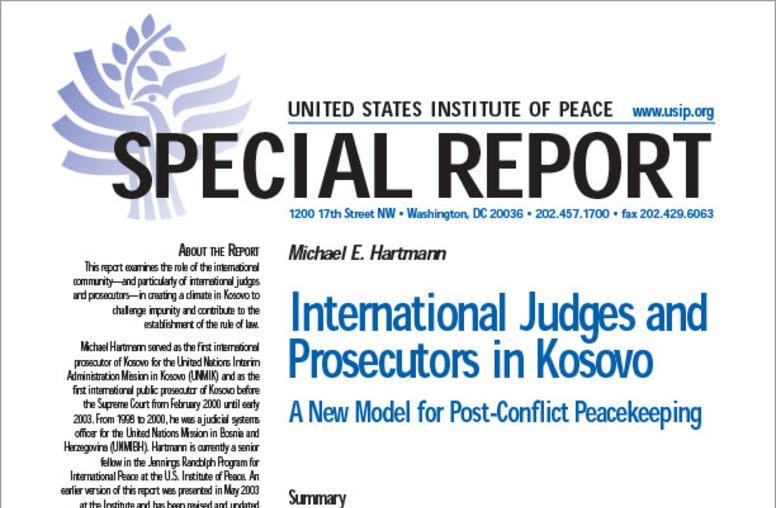
International Judges and Prosecutors in Kosovo: A New Model for Post-Conflict Peacekeeping
This report examines the role of the international community—and particularly of international judges and prosecutors—in creating a climate in Kosovo to challenge impunity and contribute to the establishment of the rule of law.
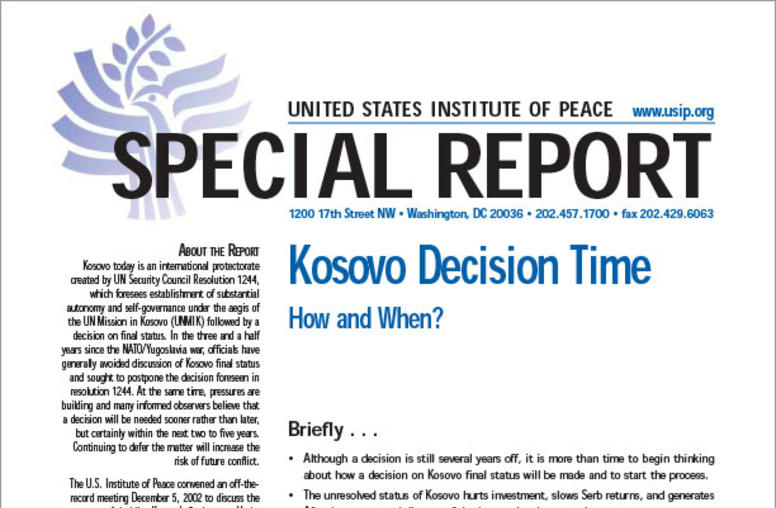
Kosovo Decision Time: How and When?
Kosovo today is an international protectorate created by UN Security Council Resolution 1244, which foresees establishment of substantial autonomy and self-governance under the aegis of the UN Mission in Kosovo (UNMIK) followed by a decision on final status. In the three and a half years since the NATO/Yugoslavia war, officials have generally avoided discussion of Kosovo final status and sought to postpone the decision foreseen in resolution 1244. At the same time, pressures are building and ...
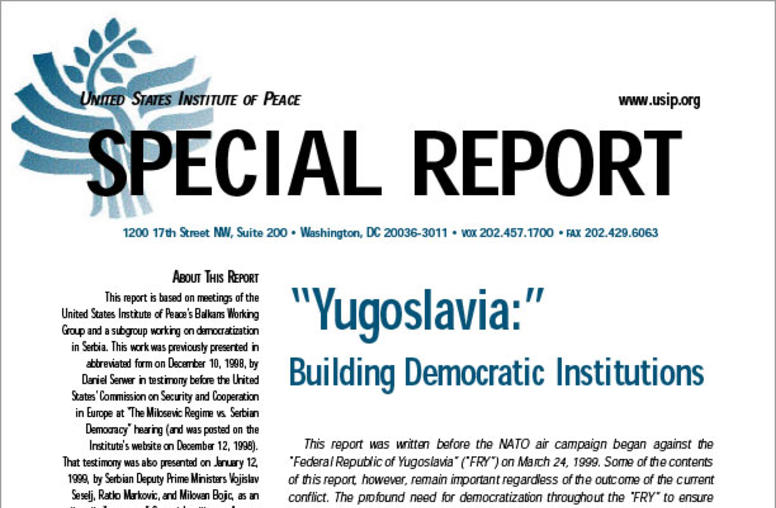
"Yugoslavia": Building Democratic Institutions
This report was written before the NATO air campaign began against the "Federal Republic of Yugoslavia" ("FRY") on March 24, 1999. Some of the contents of this report, however, remain important regardless of the outcome of the current conflict. The profound need for democratization throughout the "FRY" to ensure long-term stability in the region has been made clearer in these past few weeks. Summary The possibility of finding solutions to the "Federal Republic of Yugoslavia's" long...
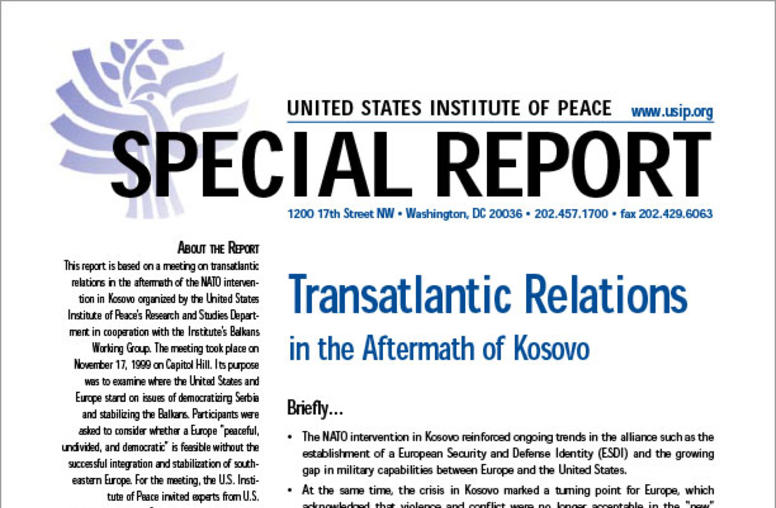
Transatlantic Relations In the Aftermath of Kosovo
Summary The NATO intervention in Kosovo reinforced ongoing trends in the alliance such as the establishment of a European Security and Defense Identity (ESDI) and the growing gap in military capabilities between Europe and the United States. At the same time, the crisis in Kosovo marked a turning point for Europe, which acknowledged that violence and conflict were no longer acceptable in the "new" Europe--even on its periphery.
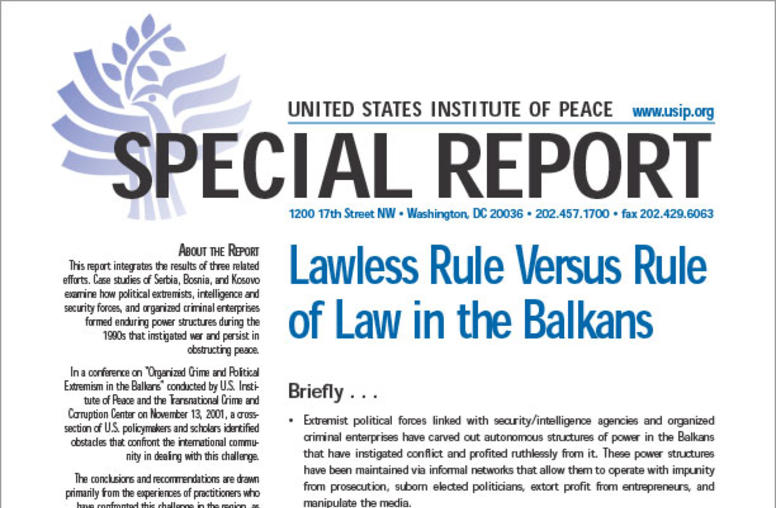
Lawless Rule Versus Rule of Law in the Balkans
This report integrates the results of three related efforts. Case studies of Serbia, Bosnia, and Kosovo examine how political extremists, intelligence and security forces, and organized criminal enterprises formed enduring power structures during the 1990s that instigated war and persist in obstructing peace.
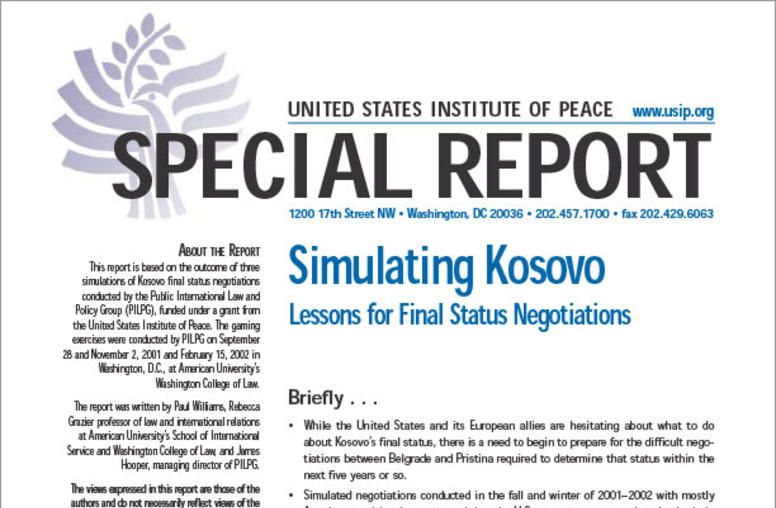
Simulating Kosovo: Lessons for Final Status Negotiations
This report is based on the outcome of three simulations of Kosovo final status negotiations conducted by the Public International Law and Policy Group (PILPG).
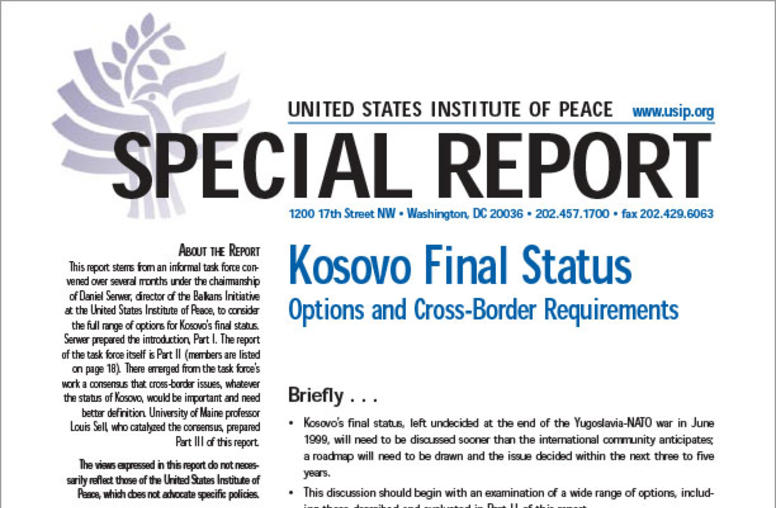
Kosovo Final Status: Options and Cross-Border Requirements
Summary Kosovo's final status, left undecided at the end of the Yugoslavia-NATO war in June 1999, will need to be discussed sooner than the international community anticipates; a roadmap will need to be drawn and the issue decided within the next three to five years. This discussion should begin with an examination of a wide range of options, including those described and evaluated in Part II of this report.